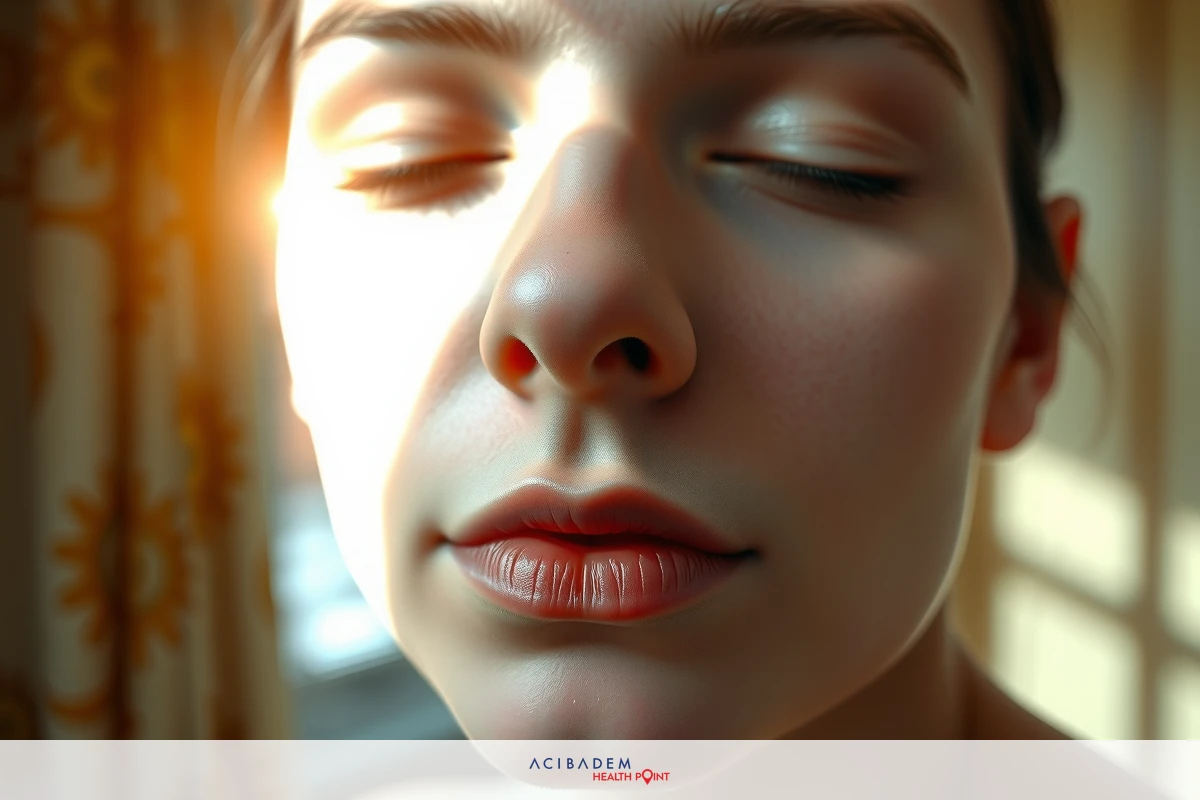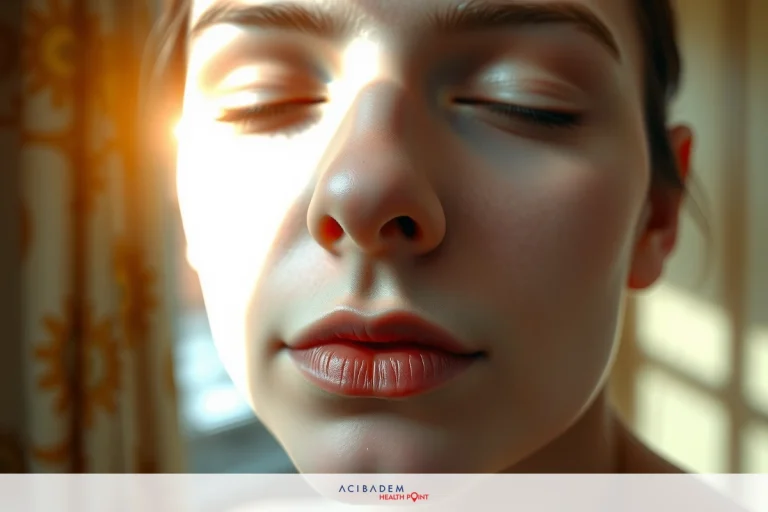Why No Sun Exposure After Rhinoplasty
Why No Sun Exposure After Rhinoplasty The sun’s relentless rays, though often sought after for their warmth and light, become a source of concern and avoidance following rhinoplasty. The post-operative period demands diligent care to ensure the best possible recovery; one vital aspect is shielding the newly sculpted nose from sunlight.
Sun exposure poses risks that could hinder healing, such as intensified swelling or pigmentation changes. These complications can potentially elongate recovery times or even negatively impact the final aesthetic outcome of the surgery. Patients need to understand these implications fully – it’s not just about comfort but also about achieving optimal results from their investment in self-improvement.
Precautions include wearing broad-spectrum sunscreen and protective clothing when outdoors, along with avoiding direct sunlight whenever feasible. While these measures might seem inconvenient or restrictive at first glance, they are instrumental in facilitating a smooth journey towards a recovered nose – one where desired aesthetics align seamlessly with functional efficacy.
Importance of Sun Protection
Post-rhinoplasty, the concept of sun protection takes on a heightened importance. It is no longer merely about avoiding sunburns or tanning evenly. The healing phase following rhinoplasty involves tissue remodeling and recovery, processes that can be significantly hampered by unnecessary sun exposure.
The skin’s top layer acts as a barrier against environmental factors including sunlight. When this barrier is compromised—as it inevitably is in surgical procedures like rhinoplasty—the underlying tissues become more susceptible to damage from various sources, including UV radiation from the sun. This vulnerability could potentially lead to complications such as hyperpigmentation changes and excessive scarring which might affect both the aesthetic and functional outcomes of the surgery.
Inflammation naturally occurs during the healing process after rhinoplasty; it’s part of how our bodies respond to injuries—even those intentionally inflicted for medical purposes. However, exposing an inflamed nose to sunlight may exacerbate swelling and discomfort because UV rays tend to stimulate inflammatory responses further.
Sun protection measures are thus an integral part of post-operative care for rhinoplasty patients—a critical step towards ensuring optimal results from their procedure.
Protecting your nose from harmful UV rays isn’t just beneficial during the immediate post-surgery period but also crucial in maintaining long-term results achieved through rhinoplasty. Continuous unprotected sun exposure over time can cause skin aging signs such as wrinkles and discoloration—effects you certainly wouldn’t want on your newly enhanced nose!
Diligent sun protection is essential for both short-term recovery and long-term aesthetic preservation. Applying sunscreen regularly and wearing a wide-brimmed hat when outdoors are simple precautions that enhance your satisfaction with your rhinoplasty journey.
Risks of Sun Exposure
In the context of rhinoplasty recovery, excessive sun exposure can pose several risks that potentially complicate healing and affect surgical outcomes. The physiological changes following nasal surgery render the nose more vulnerable to UV radiation, leading to various potential complications.
- Increased Swelling: While some degree of swelling is expected after rhinoplasty, it’s crucial to keep it

The image shows a young woman with her eyes closed, seemingly in deep thought or possibly taking a nap. The sun appears to be shining on her face, creating a gentle glow that highlights her features and adds a serene atmosphere to the scene. under control for a smoother recovery process. Sunlight heats up skin tissues which may lead to increased blood flow and thereby exacerbate post-operative swelling.
- Pigmentation Changes: Unprotected exposure to sunlight can trigger hyperpigmentation in the sensitive post-surgical skin on your nose, resulting in uneven coloration or dark spots—complications that detract from your desired aesthetic outcome.
- Excessive Scarring: A key aspect of healing after any surgery involves scar formation and maturation; this process could be adversely affected by sun exposure. UV radiation may cause scars to become thicker or darker than they would have otherwise been.
- Sunburn: With its compromised barrier function due to surgery, your nose becomes especially susceptible to getting sunburnt during its healing phase—a situation best avoided considering the discomfort and potential delay in recovery it might induce.
- Premature Aging Signs: Chronic unprotected sun exposure accelerates signs of aging such as wrinkles and discolorations—an undesirable scenario on a newly rejuvenated nose!
Understanding these risks emphasizes how crucial proper precautions are when it comes to managing sun exposure throughout your rhinoplasty recovery journey—it’s not just about immediate comfort but also about long-term satisfaction with your surgical results!
Precautions for Optimal Healing
Adopting proper precautions post-rhinoplasty can significantly enhance your healing experience and influence the final outcome of the surgery. It’s crucial to understand that recovery doesn’t end when you leave the operating room—it requires continued care and attention, particularly regarding sun exposure.
- Avoid Direct Sunlight: Especially in the early phase of recovery, avoid direct sunlight as much as possible. This is most critical during midday when UV rays are at their strongest.
- Wear Sunscreen: Applying a broad-spectrum sunscreen with SPF 30 or higher every day—rain or shine—is non-negotiable! Don’t forget to reapply it every two hours if you’re outdoors.
- Use Protective Clothing: A wide-brimmed hat can provide additional protection for your nose against harmful UV radiation from the sun.
- Consult Your Surgeon: Follow-up appointments with your surgeon are an essential part of your healing journey where personalized advice considering your specific progress will be provided.
Remember, these precautions aren’t just about preventing discomfort—they’re instrumental in ensuring that both aesthetic and functional objectives set out at the beginning of this transformative process are met satisfactorily!
Frequently Asked Questions
How long should I avoid sun exposure after rhinoplasty?
It's generally recommended to stay out of direct sunlight, especially during peak UV hours, for at least four to six weeks following surgery. However, the duration may vary depending on individual healing rates and surgeon recommendations.
Can I use tanning beds instead of natural sunlight post-rhinoplasty?
No. Tanning beds emit concentrated UV radiation which can be even more damaging than natural sunlight for your healing nose.
What type of sunscreen is best after a rhinoplasty procedure?
A broad-spectrum sunscreen that protects against both UVA and UVB rays with an SPF 30 or higher is ideal.
Is it enough to just wear a hat outside after my rhinoplasty?
While hats provide additional protection, they shouldn't replace other measures like applying sunscreen or avoiding peak sun hours when possible.











